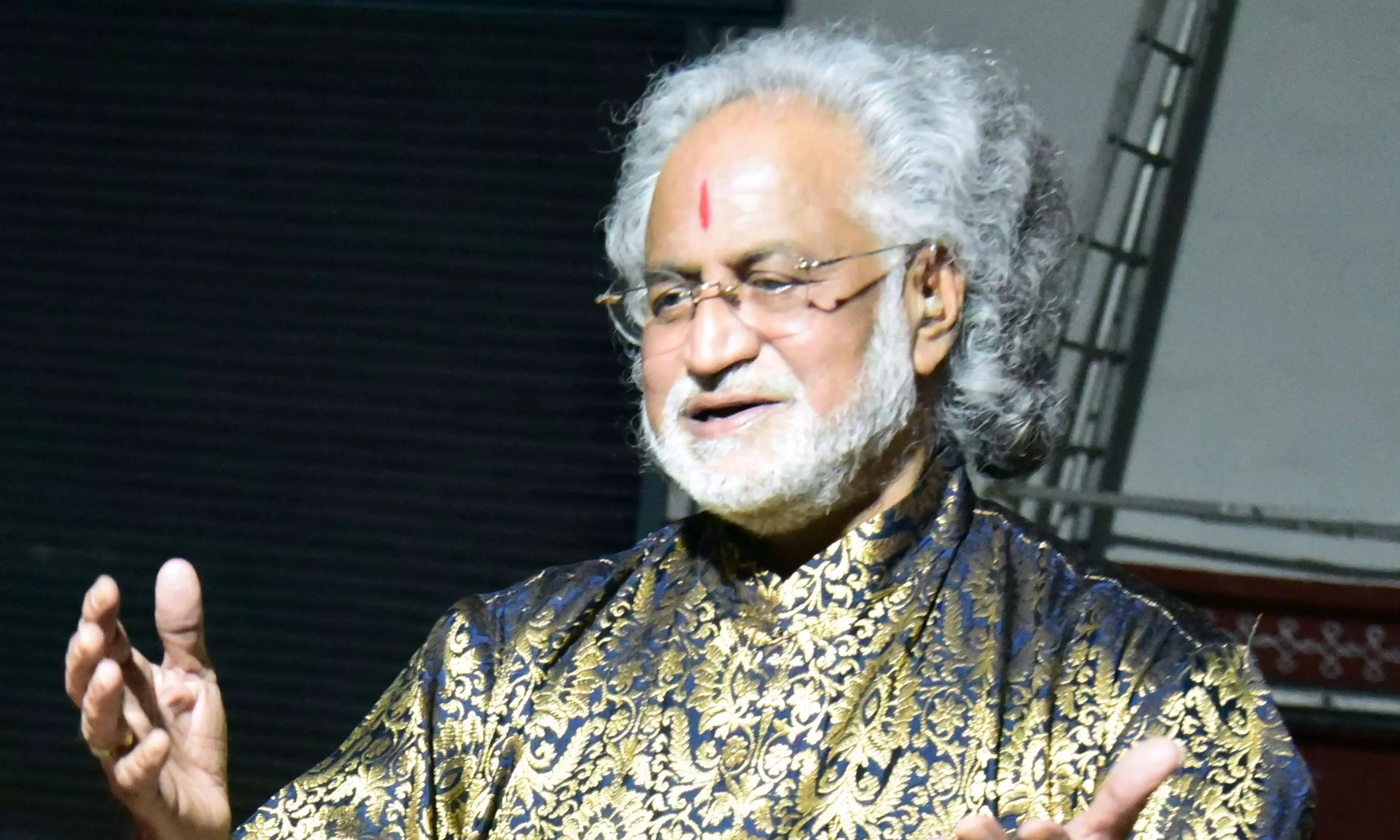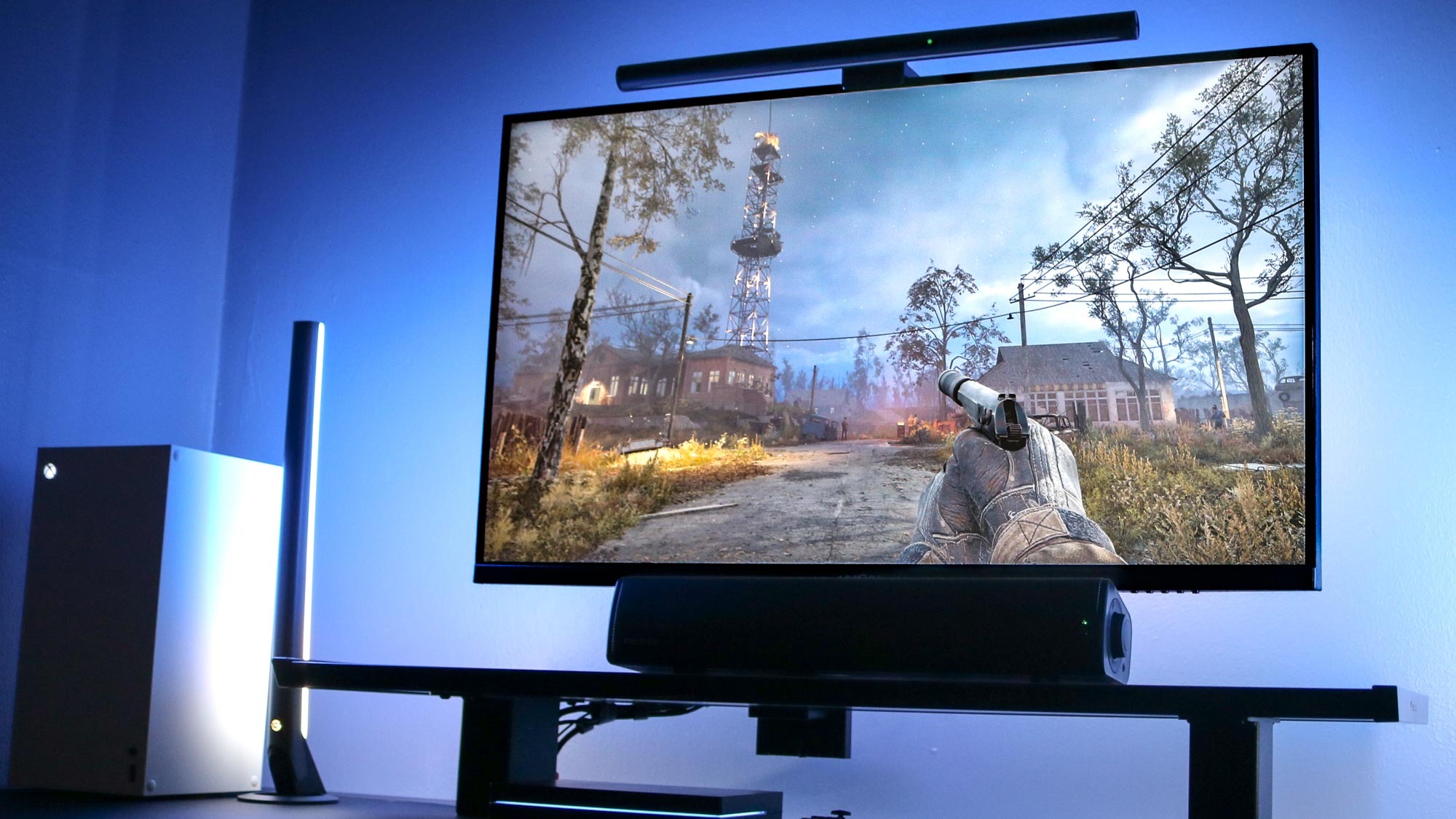
Two legendary Hindustani classical instrumentalists took Hyderabadi audience in the palm of their hands with their virtuoso renditions. Exclusive interactions with them provided insights on the connection between life and music. Grammy-nominated flautist Ronu Majumdar and Grammy-winning slide guitarist Vishwa Mohan Bhatt are highly acclaimed musicians (both are recipients of Padma Bhushan and Sangeet Natak Academy awards), who are widely recognised for carrying forward the legacy of their revered guru, Pandit Ravi Shankar.
The two captivated the city audience with their stunning performances during the Bade Ghulam Ali Khan music festival, under the auspices of Sangitanjaly Foundation, at Ravindra Bharati here on Sunday. The proceeds of the show are earmarked for Autism Ashram. Viswa Mohan Bhatt won Grammy for his album 'A Meeting By the River' with Ry Cooder in 1993.
He was a disciple of Bharat Ratna Pandit Ravi Shankar, renowned Sitar player and music composer. Viswa Mohan Bhatt is known for the invention of a 20-stringed instrument 'Mohan Veena'. He performed at Ravindra Bharathi on Sunday on occasion of Bade Ghulam Ali Khan music festival organised by Sangitanjaly Foundation.
The organisation felicitated him with a Lifetime Achievement award. In an interview with Deccan Chronicle Viswa Mohan Bhatt spoke about the invention of the famed Mohan Veena. Could you share the journey behind the invention of the Mohan Veena? VMB: The idea for the Mohan Veena started in 1966 or 1967, when I had a simple thought: to create an instrument that could combine the sound and technique of several traditional Indian instruments — veena, sitar, sarod, santur, and sarangi — all in one.
Then, quite serendipitously, a German lady came to India to learn Indian music on her guitar. When she left, we bought her guitar for 25 rupees. It sat there, tempting me to do something with it.
I began experimenting with it, but I felt the sound was somewhat lonely. So, I added sympathetic strings, inspired by the sitar’s principle. These strings vibrate on the same frequency as the main strings and resonate without being struck.
This idea of sympathetic resonance became the core of my design. Pandit Brijbhushan Kabra ji had already introduced this guitar to Indian classical music, and I added to it by incorporating 12 sympathetic strings, a tumba (a resonator), and other features. The result was the Mohan Veena, with a total of 20 strings.
I also created another instrument, the Vishwa Veena, which combines the 20 strings of the Mohan Veena with 15 harp strings — totaling 35. However, it became difficult to manage, so I now primarily perform with the Mohan Veena. I made my debut performance in 1970 in Mumbai, and I still remember the headline: "20-year-old artiste steals the limelight.
" That was a huge encouragement for me. From there, my journey continued, performing at major Indian classical music conferences, receiving awards, and gaining recognition. That’s more than 50 years in your musical journey.
Looking back, what has been the most memorable or transformative experience? VMB: There are many memorable moments, but the biggest encouragement came from my Guru, Pandit Ravi Shankarji. His blessing meant everything to me. He once told me, "You will rule the world.
What you have done with this instrument is unparalleled, and you will receive your due recognition soon." His words were powerful and guided me through my journey. Later, receiving prestigious awards like the Padma Shri, Padma Bhushan, the Tansen Award, and the Grammy was validating, but for me, the true reward is the respect from my peers and the satisfaction of knowing I’ve contributed to Indian classical music.
The Padma awards and the Sangeet Natak Akademi Award are particularly meaningful to me, as they recognise the artistry and tradition of my work. But I don’t chase awards; I am content with my music and my life. Could you share your experience of winning Grammy? VMB: I would say I was the one who popularised Grammy in India, as most people were not aware.
Nowadays everyone talks about Grammy and the award popularises me. For me, the prestige comes from Padma awards and Sangeet Natak Akademi award. What are some life lessons you learned from Pandit Ravi Shankar that you carry with you? VMB: There were so many lessons.
He was not only a great musician but a complete Guru to me. I observed him closely — his discipline, punctuality, how he conducted himself, and how he ran his programmes. Beyond the technical aspects, he taught me important life values: be honest with your work, be honest with others, be disciplined and punctual and always perform with integrity.
These lessons have stayed with me throughout my career. You mentioned how media and technology have transformed music, with platforms like YouTube and Spotify making music more accessible. What’s your perspective on this? VMB: These platforms are a wonderful way to spread music.
They’ve completely changed the landscape. In my time, we were starving to hear good music. I wanted to listen to Bade Ghulam Ali Khan, but where could I find it? We were dependent on Akashvani (radio), and sometimes you’d only hear rare broadcasts.
Now, with just a click, you can listen to anything, anywhere. Even I use YouTube to listen to music when I’m bathing! It’s a golden era for music, where exposure is just a click away, and artistes can become popular in months. But there's also artificial intelligence (AI) emerging in music production.
What do you think about this? VMB: AI is certainly intelligent, but it can be dangerous too. It can help us express ideas, but if misused, it could harm the very essence of creativity. AI can replicate music, but it lacks the emotional depth and spiritual connection that human creativity brings.
While AI may assist in composing or producing, true creativity comes from within us—it’s deeply connected to our soul and experience. Do you think AI can truly replace the kind of creativity and spirituality associated with classical music? VMB: Creativity is within you. I live in the U.
S., and my daughter is learning about AI. AI can help you express ideas, as it gets difficult to define them sometimes but AI needs to be used appropriately.
.














